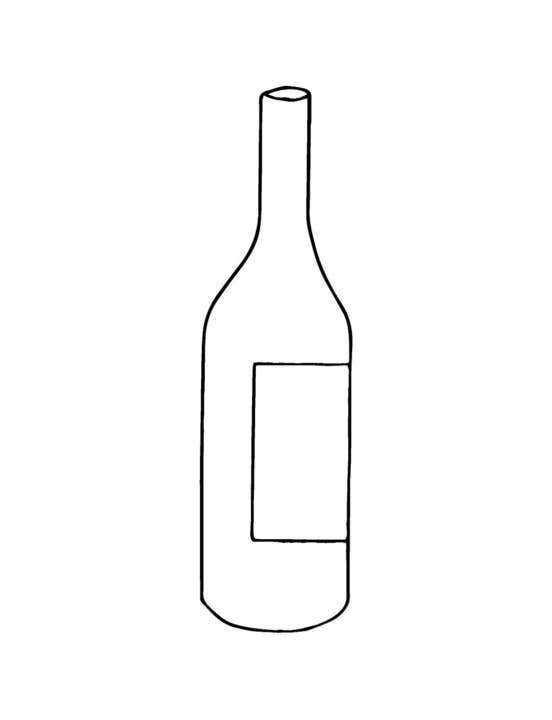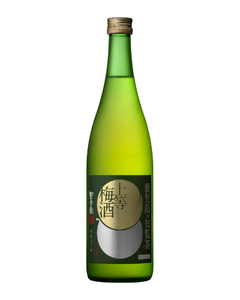Sake
-
 Dewazakura Seijo Karakuchi Junmai 720mlSeijo Karakuchi is Dewazakura’s every day sake. Seijo means ‘with whole heart’ and Karakuchi means ‘dry’. It can be enjoyed chilled or warm depending on your food choice or the season. It has a delicate herb fragrance and light bodied sake with a hint of mushroom. The finish is clean and crisp.SakeJapan$44.00 As low as $39.60
Dewazakura Seijo Karakuchi Junmai 720mlSeijo Karakuchi is Dewazakura’s every day sake. Seijo means ‘with whole heart’ and Karakuchi means ‘dry’. It can be enjoyed chilled or warm depending on your food choice or the season. It has a delicate herb fragrance and light bodied sake with a hint of mushroom. The finish is clean and crisp.SakeJapan$44.00 As low as $39.60 -
 Melbourne Sake 'TM' 2023 Sake 720ml
Melbourne Sake 'TM' 2023 Sake 720mlMore product information will be added here soon! In the meantime, if you do have any questions at all about this product or others in our store, you can contact us by phone or email. Our friendly and experienced team are always happy to assist - we love drinking, selling, talking about and being in and around wine!
2023SakeJapan$45.00 As low as $40.50 -
 Kuni Zakari Handago Junmai Ginjo Sake 720ml
Kuni Zakari Handago Junmai Ginjo Sake 720mlHandago’ means Handa area/village/city where Kunizakari has been located since 1844.
This Sake is made with 100% local rice from their contracted rice farmers. Delicate citrus tones on the nose, clean and light texture and Umami from the rice, fully flavoured with fresh grape fruitiness.
‘Karakuchi’ means dry and crisp, and this Sake has a beautifully dry, crisp and clean finish.
SakeJapan$52.00 As low as $46.80 -
 Tengumai Yamahai Jikomi Junmai Sake 720mlThis sake is classic Tengumai, made using Yamahai method. 'Jikomi' means 'procedure' or 'method'. This Junmai sake has been matured in tank more than 12 months. It has slight golden color, and full of flavour, complexity and good acidity.Yamahai is a very old and traditonal technique, and Tengumai have mastered this technique and it is reflected in this sake. Lots of spices, tumeric and even aged chese aromas. Rich and complex on the palate, with savoury, creamy, citrus characters, it has an incredibly long finish.
Tengumai Yamahai Jikomi Junmai Sake 720mlThis sake is classic Tengumai, made using Yamahai method. 'Jikomi' means 'procedure' or 'method'. This Junmai sake has been matured in tank more than 12 months. It has slight golden color, and full of flavour, complexity and good acidity.Yamahai is a very old and traditonal technique, and Tengumai have mastered this technique and it is reflected in this sake. Lots of spices, tumeric and even aged chese aromas. Rich and complex on the palate, with savoury, creamy, citrus characters, it has an incredibly long finish.
SakeJapan$56.00 As low as $50.40 -
 Yomogi Kabosu Oka Brand Japanese Bermutto (Vermouth) 720ml
Yomogi Kabosu Oka Brand Japanese Bermutto (Vermouth) 720mlOka Kura is Junmai sake based, aromatized with four unique Japanese botanicals, and fortified with shochu. It is produced in Kumamoto, Japan, at the Tsutsumi Distillery. Oka Kura has a medium-light body with a round mouthfeel provided by the sake. You can very clearly taste the rice, yeast, yuzu, wormwood, and sansho. The combination of yuzu and yomogi creates a strong grapefruit backbone that dominates the palate beginning to end.
Oka Kura Bermutto is a uniquely Japanese take on the category of vermouth made from aromatised, shochu-fortified sake. Technically it's not a vermouth because it is not wine-based, but it works in cocktails as a vermouth should—as a botanically-infusing, low ABV modifier— that bridges a gap between sake, shochu, and vermouth.
2019SakeJapan$60.00 As low as $54.00 -
 Fukuju Junmai 720ml
Fukuju Junmai 720mlThe name Fukuju is derived from one of the Seven Lucky Gods in Japanese mythology. Fukuju is a relatively small brewery, making artisan and craft sake. Current owner Yasafuku San is 13th generation.
The house style is very elegant. The water in Nada/Kobe is called Miyamizu, and it is hard water by Japanese standards, full of minerals and is famous water in the ‘sake world’. Nada regional style is dry and has good grip with spiciness.
Water’s influence is very significant in Sake style, and Fukuju use this Miyamizu as well as blending pure water (filtered soft water) to make particular style of Sake. They take ‘water’ seriously in making and developing new way of Sake making.Fukuju is traditional with a modern approach at the same time. Since the large earthquake in this area in 1995, they built their brewery which is Seismic structure, and are progressing to create ecofriendly and sustainable way of Sake making.
The water in Nada/Kobe is called Miyamizu and is famous because it's full of minerals. Fukuju Junmai Sake is dry and has good grip with spiciness.
SakeJapan$61.00 As low as $54.90 -
 Kitajima Yuzushu with Sea Salt 720mlProduced by the highly regarded Kitajima Sake Brewery. This Yuzushu uses all natural ingrediens and is made with Sake, sea salt and four times the the yuzu of of most regular yuzushu. It's rich and luxurious, concenetrated but wonderfully fresh and so distinctive. A PWS favourite!2019SakeJapan$61.00 As low as $54.90
Kitajima Yuzushu with Sea Salt 720mlProduced by the highly regarded Kitajima Sake Brewery. This Yuzushu uses all natural ingrediens and is made with Sake, sea salt and four times the the yuzu of of most regular yuzushu. It's rich and luxurious, concenetrated but wonderfully fresh and so distinctive. A PWS favourite!2019SakeJapan$61.00 As low as $54.90 -
 Kitajima Octopus of Shiga Bay Junmai Daijingo Sake 720mlNamed after the mythical octopus which is said to guard Shiga bay. This robust sake has a rich mix of fruit and savoury elements, up front is green melon, white peach and edamame leading to nougat and cream followed by savoury undertones of shitake mushroom, rice bran, and almonds with a hint of salt & pepper to close. An elegant, sessionable sake for both dining and imbibing.2019SakeJapan$63.00 As low as $56.70
Kitajima Octopus of Shiga Bay Junmai Daijingo Sake 720mlNamed after the mythical octopus which is said to guard Shiga bay. This robust sake has a rich mix of fruit and savoury elements, up front is green melon, white peach and edamame leading to nougat and cream followed by savoury undertones of shitake mushroom, rice bran, and almonds with a hint of salt & pepper to close. An elegant, sessionable sake for both dining and imbibing.2019SakeJapan$63.00 As low as $56.70 -
 Kunizakari Grandma's Yuzushu Sake 720ml
Kunizakari Grandma's Yuzushu Sake 720mlMore product information will be added here soon! In the meantime, if you do have any questions at all about this product or others in our store, you can contact us by phone or email. Our friendly and experienced team are always happy to assist - we love drinking, selling, talking about and being in and around wine!
SakeJapan$73.00 As low as $65.70 -
 Hombo Shuzo Joto Chiran-Cha Umeshu (Green Tea Infused) 700mlUmeshu is produced by infusing Ume fruit into Shochu. Green Tea flavour is added to achieve refreshing character. The texture is smooth and is has well balanced sweetness and delicate green tea tannin. Finishing is crisp and clean. It is refreshing to have chilled Umeshu straight or over ice, or cold spring water. Or you can create any kind of beautiful Umeshu cocktail
Hombo Shuzo Joto Chiran-Cha Umeshu (Green Tea Infused) 700mlUmeshu is produced by infusing Ume fruit into Shochu. Green Tea flavour is added to achieve refreshing character. The texture is smooth and is has well balanced sweetness and delicate green tea tannin. Finishing is crisp and clean. It is refreshing to have chilled Umeshu straight or over ice, or cold spring water. Or you can create any kind of beautiful Umeshu cocktail
SakeJapan$77.00 As low as $69.30 -
 Kuni Zakari Koucha Umeshu (Black Tea Infused) 500ml
Kuni Zakari Koucha Umeshu (Black Tea Infused) 500mlBlack tea and Umeshu blended. Ume and tropical notes on the nose with almond character. Medium body Umeshu with a creamy texture, the palate shows clean sweetness and good quality black tea, tannin and clean acidity. The finish is clean. Chilled Umeshu straight, over ice,or cold spring water. Great for Umeshu cocktail.
SakeJapan$84.00 As low as $75.60 -
 Dewazakura Omachi Junmai Ginjo Sake 720ml
Dewazakura Omachi Junmai Ginjo Sake 720mlMore product information will be added here soon! In the meantime, if you do have any questions at all about this product or others in our store, you can contact us by phone or email. Our friendly and experienced team are always happy to assist - we love drinking, selling, talking about and being in and around wine!
SakeJapan$86.00 As low as $77.40 -
 Kenbishi Mizuho Junmai 720mlKenbishi is very classic – keeping same Sake making methods which involve Yamahai method and wild yeast. King of Sake rice ‘Yamadanishiki’ 100% used. ‘Mizuho’ means ‘ear of rice’, but in this case, Kenbishi meant it is ‘Junmai’. Blends of 2 YO to 8 YO tank aged Sake. Distinctive golden colour. Medium to full body. It shows honey, malt and nuts on nose. High in Umami and acidity. Texture is smooth and mouth coating warmth. Rich and complex on the palate with a crisp long finish.SakeJapan$87.00 As low as $78.30
Kenbishi Mizuho Junmai 720mlKenbishi is very classic – keeping same Sake making methods which involve Yamahai method and wild yeast. King of Sake rice ‘Yamadanishiki’ 100% used. ‘Mizuho’ means ‘ear of rice’, but in this case, Kenbishi meant it is ‘Junmai’. Blends of 2 YO to 8 YO tank aged Sake. Distinctive golden colour. Medium to full body. It shows honey, malt and nuts on nose. High in Umami and acidity. Texture is smooth and mouth coating warmth. Rich and complex on the palate with a crisp long finish.SakeJapan$87.00 As low as $78.30

